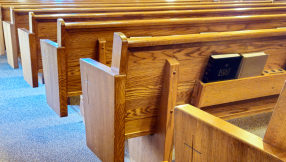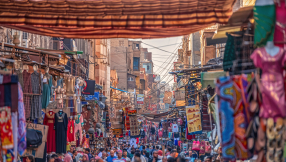Kobia issues final address as WCC General Secretary
|PIC1|“I hope it is unnecessary to emphasize that the ‘courage to hope’ has been a central theme of my personal ecumenical journey,” Kobia said. “Holding together cross and resurrection, the sinful reality we are facing and the good news of the gospel, hope in Christ combines realism with the inspiring vision of God’s reign to come.”
He pointed to examples of resilience in places such as the Democratic Republic of Congo, Rwanda, the Philippines, and Israel-Palestine – where he said the “effects of occupation are easily evident”. Kobia said he has valued the “pastoral dimension” of his role, walking with churches in those difficult situations so they know “they are not alone”.
“As I have travelled around the world, I have seen and heard expressions of despair and pessimism in all regions of the world,” Kobia said in a press conference following the address. “I thought that as I did my last report as general secretary that I would come back to what has been a major preoccupation of mine – whether the ecumenical movement can inspire hope … in situations that would otherwise seem hopeless.”
The comprehensive address touched on a host of other issues, including the need for greater involvement of youth and young adults in the ecumenical movement, the impact of migrant communities, climate change, the shifting dynamics of ecumenism in the 21st century and the new models of work into which the WCC is living.
He listed care for creation, interreligious cooperation and “the cry for transformative justice” as major areas the WCC has addressed “with greater urgency”. The current greed-driven economic crisis has added to global concerns, he said, and further constrained the WCC’s own financial situation.
Amid the many challenges, Kobia urged those present to maintain hope themselves, and not to lose focus.
“I plead with you not to lose sight of the greater picture or to get bogged down in the institutional necessities and concerns,” he said. “Let us always remind ourselves of the broader vision, which holds the key for the future of humanity and this world. This future has taken shape among us in Christ, in his death on the cross and resurrection.”
The World Council of Churches is a worldwide fellowship of 349 churches seeking unity, a common witness and Christian service.













